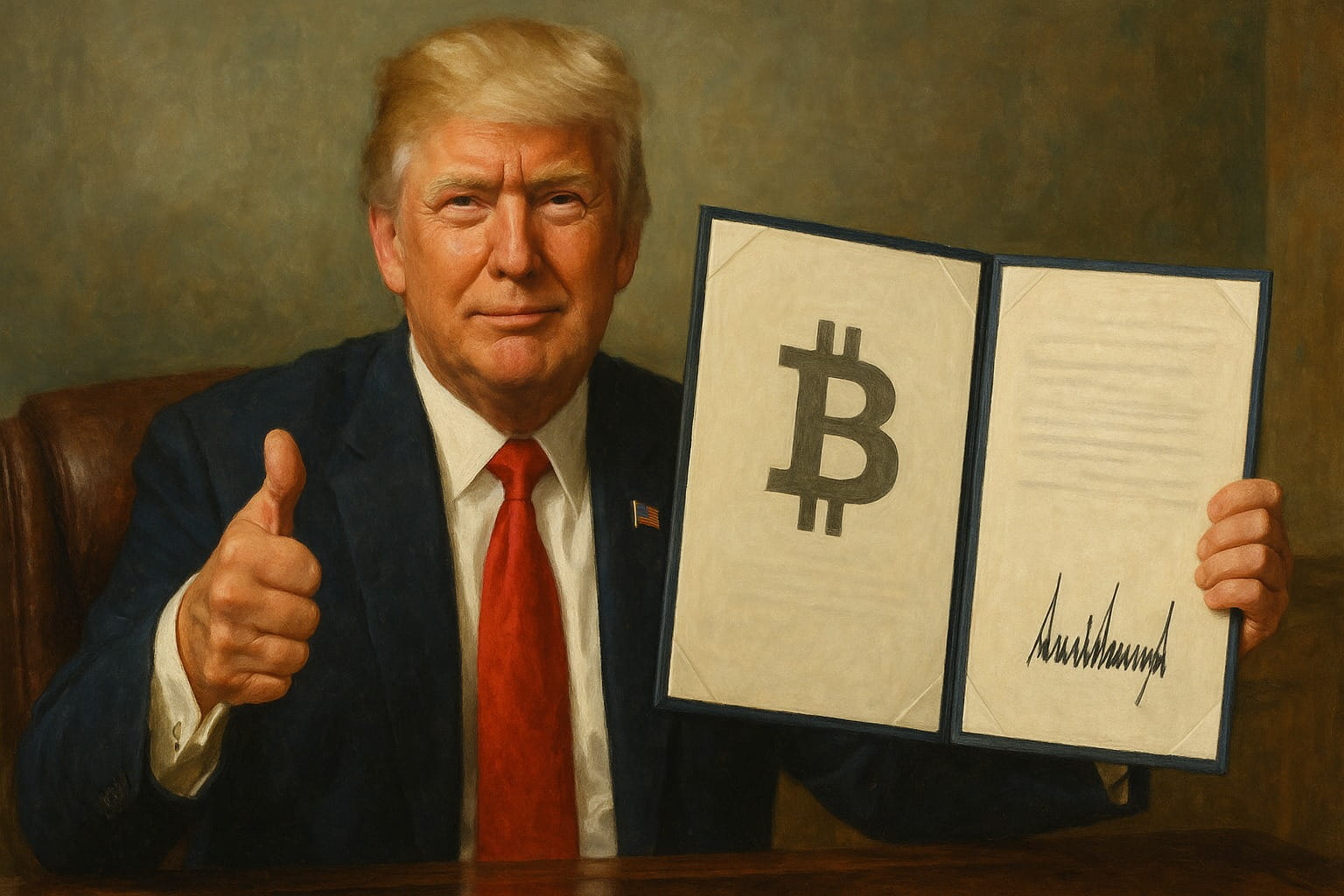
U.S. President Trump is rumored to be signing an executive order soon to allow 401(k) retirement plans to invest in cryptocurrencies and other non-traditional assets. This move could fundamentally change the savings and investment habits of Americans and will also have an impact on global pension systems and the cryptocurrency industry. Even though the White House has indicated that the policy has not been formally finalized, it has already generated significant attention from various sectors.
Will 401(k) retirement plans include cryptocurrency investments?
According to the Financial Times, three informed sources revealed that the Trump administration is considering signing a brand new executive order that will allow American citizens to invest in cryptocurrencies, precious metals, private loans, private equity, corporate acquisition funds, and infrastructure-related assets through 401(k) retirement benefit plan accounts.
*TRUMP SET TO OPEN US RETIREMENT MARKET TO CRYPTO INVESTMENTS: FT
— *Walter Bloomberg (@DeItaone) July 17, 2025
It is reported that the executive order requires the government and major regulatory agencies to study the relevant regulatory framework, risk management, and investment thresholds to address the current design obstacles in the system. This move symbolizes a shift for 401(k) plans from focusing on traditional assets such as stocks, ETFs, and bonds to a broader range of asset classes, opening up new savings and investment methods for retirement investors.
White House: Trump has not confirmed, so it is considered unofficial news
As one of the most important retirement savings tools in the U.S., the total asset size of 401(k) plans had reached $8.9 trillion by the first quarter of this year, covering over 710,000 plans. Dragonfly partner Omar pointed out that if cryptocurrencies can be successfully integrated into this system, it will inject massive funds and legitimacy into the entire cryptocurrency market, positively impacting its liquidity, market capitalization, and institutional participation.
The total amount of retirement assets in the U.S. reaches $43 trillion, of which 401(k) accounts account for $9 trillion. With Trump opening the floodgates, if cryptocurrencies can gain just 1% allocation from 401(k) accounts, it would bring about $90 billion in new capital inflows, and a real feast is about to begin.
However, White House spokesperson Kush Desai reminded: 'Unless the news comes directly from Trump himself, other sources should not be considered as official decisions.'
In fact, Trump's move can be seen as a counterattack against the previous Biden administration's policies. In May of this year, the U.S. Department of Labor officially revoked the guidelines from the Biden era that restricted 401(k) plans from including cryptocurrencies, citing excessive risk and volatility. The policy reversal not only paves the way for the market but also shows various institutions the potential opportunities.
Are cryptocurrencies becoming the new favorites for pensions? Fidelity and various U.S. states are rushing ahead.
Asset management giant Fidelity has long sensed the opportunity and launched the first retirement account that can invest in cryptocurrencies in April of this year, allowing American workers to allocate part of their retirement savings into digital assets like Bitcoin. This action is also expected to encourage more traditional financial institutions to explore related products.
Retirement funds in places like Arizona, Wisconsin, and Jersey City, New Jersey, have already invested, bringing hundreds of millions of dollars into the cryptocurrency market.
At the same time, countries are beginning to assess the possibility of including cryptocurrencies in pension allocations. In March of last year, the Japanese government pension fund (GPIF) announced that it was studying the potential diversification benefits of Bitcoin. Subsequently, the British pension advisory firm Cartwright also disclosed that an anonymous pension fund has allocated 3% of its assets to Bitcoin.
(Adopting a diversified investment strategy, the Japanese government pension fund GPIF considers including Bitcoin and gold)
These signs indicate that cryptocurrencies are gradually moving from high-risk speculative tools to long-term investment assets. For pension managers, Bitcoin has potential characteristics such as anti-inflation, decentralization, and supply scarcity, which complement the risk aspects that traditional financial assets cannot cover. However, at the same time, the market's price volatility, unclear regulation, and frequent frauds also make it highly controversial.
This article 'Trump Plans to Open U.S. 401(k) Retirement Plans to Cryptocurrency Investments, $9 Trillion Scale Sparks Anticipation' first appeared in Chain News ABMedia.


